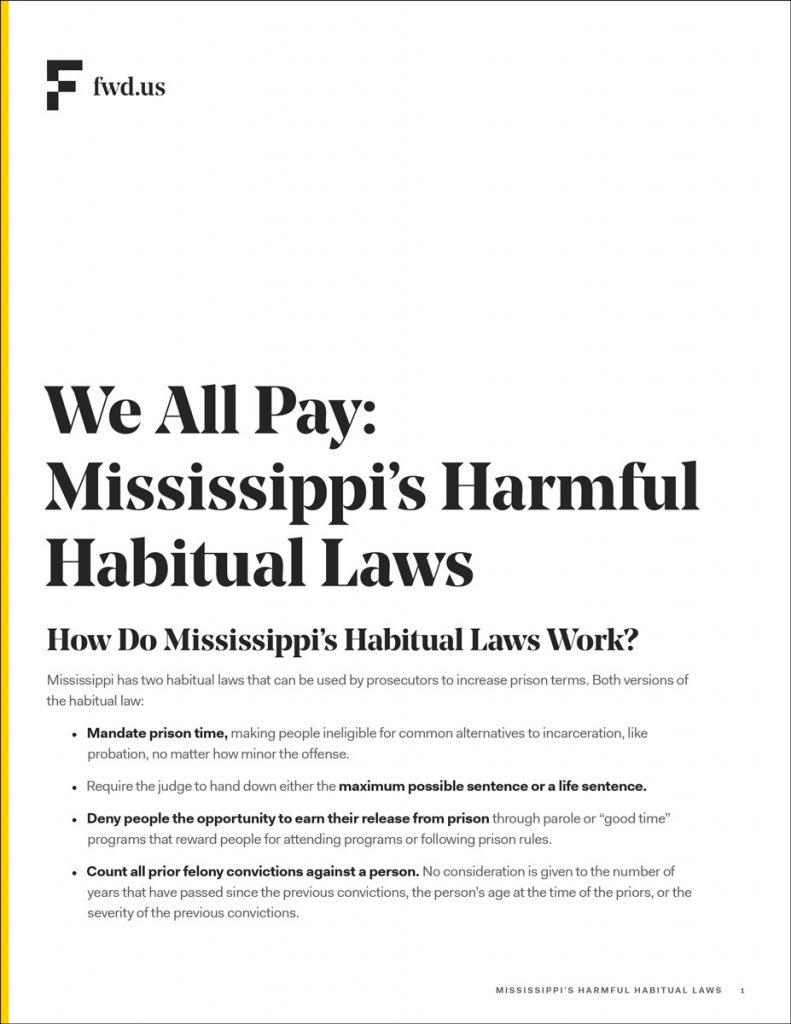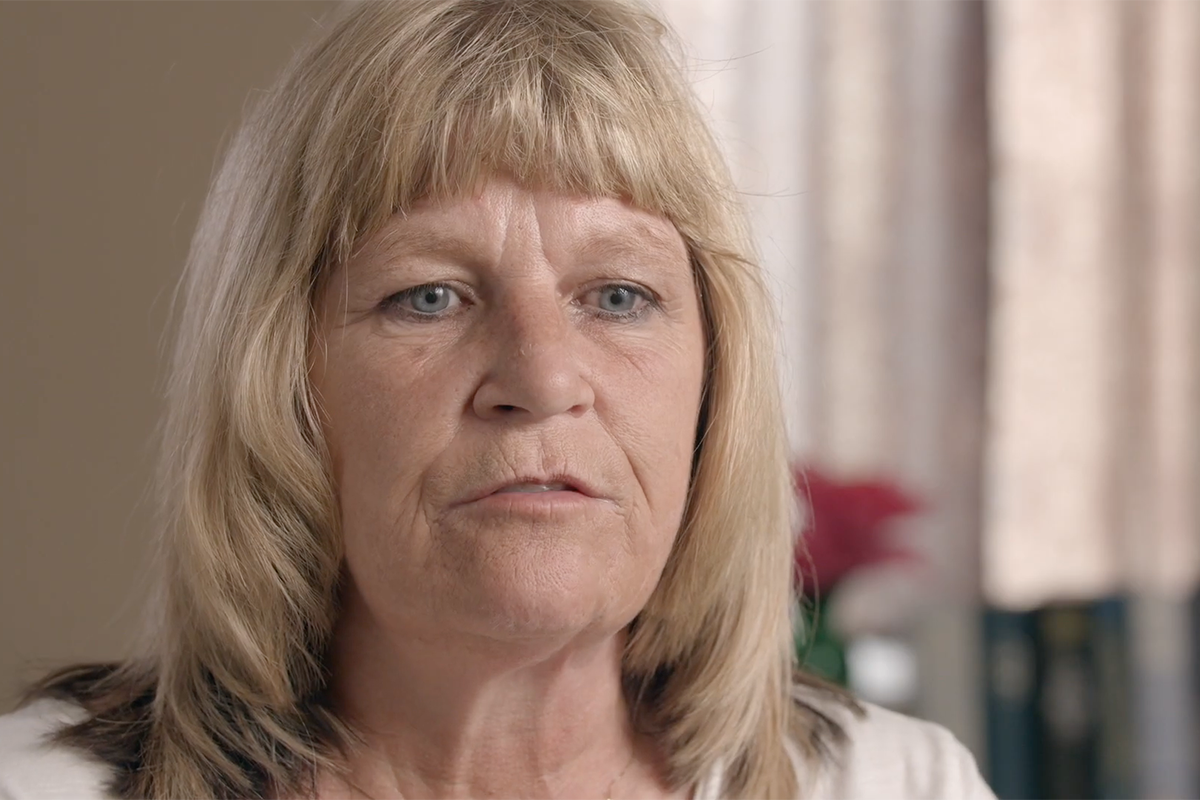Two days before Christmas in 2008, Gregory Antonio Hollins, now 46 years old, sold Jessica Wilson 1.5 grams of cocaine for $200 in Rankin County.
Before that day, Flowood police had arrested Wilson during a traffic stop. They found “drug paraphernalia”—which can be means of inhaling or injecting a controlled substance—in her vehicle. The misdemeanor offense attracts up to $500 in fines and six months in prison or both. To get a lesser punishment, Wilson agreed to be a confidential informant for the Flowood police and bait a cocaine seller.
The police placed Wilson in a room at Airport Inn (716 Highway 80 E. Flowood) and gave her $200 on Dec. 28, 2008. She called Hollins, whom she knows only by his nickname—Tefalon, from her room. She told him on the phone that she wanted to buy $200 worth of cocaine.
Shortly after the call, a man named Gene Williams knocked on Wilson’s room. After confirming that Hollins sent him, Wilson paid $200 for 1.5 grams of cocaine.

While the deal was going down inside the motel, the 6-feet-tall Hollins sat in the driver’s seat of a car outside the motel, and waited for the conclusion of the transaction. But police officers were nearby waiting to pounce. When Williams came back, joined Hollins in the vehicle and sat on the passenger’s side, the law-enforcement officers immediately arrested both men.
Following his April 23, 2009, indictment for the sale of controlled substances, then-Madison/Rankin County District Attorney Michael Guest, who now represents Mississippi’s third district at the national assembly, amended the indictment. Guest charged Hollins as an “habitual offender,” which attracts enhanced punishment under both Mississippi Code § 99-19-81 for being convicted for a felony twice before and under Mississippi Code § 41–29–147 for a subsequent drug offense.
The result: Based on the habitual offender law in Mississippi, the Rankin County district court sentenced Hollins to 60 years in prison without the possibility of parole after trial in 2010 at age 35, the Mississippi Appeals Court explained in its 2012 opinion on the case. Hollins’ anticipated release date from the Mississippi Department of Corrections’ custody is 2070 when he will be 95 years old.
Mississippi Code § 99-19-81 prescribed the maximum sentence, which comes without the possibility of parole, for a third felony conviction. Felony crimes in Mississippi include possessing certain amount of drug, drug sale, rape, sexual violence, murder, manslaughter, domestic violence and robbery.

Mississippi Code § 41–29–147 mandates a doubling of the sentence for a second or subsequent drug offense. Under Mississippi Code § 99-19-83, not applied to Hollins, if one of two previous felony convictions was for a violent offense, it does not matter what the third felony is; it will attract a life sentence without the possibility of parole. Mississippi Code § 97-3-2 listed violent crimes as carjacking, murder, drive-by shooting, shooting into a dwelling and rape.
Rep. Guest did not respond to the Mississippi Free Press email on Monday, Jan. 31, to his campaign office for comments nor another on Tuesday, Feb. 8.
His communications director, Rob Pillow, at press time, has not replied to Wednesday, Feb. 9, and Thursday, Feb. 10, emails for comments on this story. An automated email reply on Thursday from Pillow indicated that he will not be back in office until Feb. 16, and has only “periodic access to email” until then.
120-Year Sentence For Selling Marijuana
In October 2009, Tommy Jones, then a lieutenant in the Madison County sheriff’s Department’s narcotics division, used a confidential informant to trap Dwayne Boyd.
The law enforcement officer, who is now a captain, wired the informant to record video and audio of a marijuana purchase transaction and gave the person $200 for it. Boyd then presented the informant with two ziplock bags containing 35.5 grams of marijuana in exchange at a house in Madison County.

On Oct. 6, 2010, the jury saw all of this on film, leading to a guilty verdict. Boyd then expected to face seven years imprisonment for that crime.
However, the next day and before sentencing, then-District Attorney Guest acting on behalf of the State asked the Madison County circuit court for permission to amend the indictment to charge Boyd as a subsequent drug offender.
The Mississippi Court of Appeals wrote in 2012 that “Dwayne Boyd was convicted of the sale of marijuana, greater than thirty grams but less than one kilogram, within 1,500 feet of a school or within 1,000 feet of the real property of a school.”
“The Madison County Circuit Court sentenced Boyd as a subsequent drug offender to 120 years in the custody of the Mississippi Department of Corrections (MDOC), with sixty years to serve and five years of supervised post-release supervision,” the court added.
The Madison Circuit Court based its sentencing on Mississippi Code § 41–29–147.

In 2013, the Mississippi Supreme Court, in a rebuke to Guest’s action modifying the indictment after the jury found Boyd guilty, said it “constituted unfair surprise” and remanded the case to Madison County Circuit Court for resentencing. The circuit court re-sentenced Boyd in July 2013. He got out of prison in 2019, six years after the Mississippi Supreme Court’s decision.
Jermaine Mitchell: In Jail Until 2129
“You got my 40?” Ronnie Hewitt asked Jermaine Mitchell, who was then 29 years old, on the phone on Aug. 1, 2009. Hewitt was calling Mitchell to buy $40 crack cocaine. Unknown to Mitchell, Hewitt was acting as a Madison County Sheriff Department informant. Hewitt was a drug addict cooperating with the deputies in exchange for a reduced sentence, the Mississippi Court of Appeals would write later in 2011.

Before the Aug. 1 call, Madison County Deputy Trey Curtis had wired Hewitt with an audiovisual recording device. After Hewitt got an affirmative response from Mitchell, he drove to his house with Curtis and another deputy—John Harris—following in another vehicle.
Hewitt entered the house, and Mitchell gave him a small bag of cocaine in exchange for $40. Hewitt stayed for a few more minutes talking about various issues, then left. The two deputies waited for several minutes outside, and after Hewitt left the house, they followed him back to a different location and collected the recording device.
They later arrested Mitchell, and he faced trial in June 2010. Because he had two previous convictions relating to the sale of controlled substances, his sentencing was under both Mississippi Code § 41–29–147 and 99-19-81.
On June 30, 2010, the Madison County Circuit Court sentenced Mitchell to the maximum sentence of 60 years and doubled it to 120 years without the possibility of parole. His tentative release date is 2129 at age 148.
In an opinion affirming the sentence, the Mississippi Court of Appeals wrote on Nov. 8, 2011:”The circuit court determined that Mitchell was eligible for two sentence enhancements: the subsequent-drug-offender enhancement and the habitual-offender enhancement.”
‘Give Them Some Hope of Getting Out’
Two Mississippi state senators and four state representatives filed 13 bills in the 2022 legislative session to reform the habitual offenders’ laws in the state: Sens. Daniel H. Sparks, R-Belmont, and Derrick T. Simmons, D-Greenville; and Reps. Rep. Bryant W. Clark, D-Pickens, Rep. Nick Bain, R-Corinth, Rep Robert L. Johnson III, D-Natchez, and Rep. Jeffery Harness, D-Fayette. Only one of the bills made it past the committee level—Bain’s House Bill 981.
HB 981 gives people sentenced as habitual offenders an option after they have served the lesser of 20% or 15 years of their sentence. They can go to the circuit court and file a civil case to “vacate, set aside, or reduce” the judgment.
Bain, who spoke to the Mississippi Free Press on Monday, Jan. 31, said the bill provides a basis for optimism to individuals condemned as repeat offenders.
“It will give some of the habitual offenders the right to be reassessed; it will give them a right to be re-sentenced and, you know, quite frankly, to give them some hope of getting out, which makes it easier for MDOC to manage those types of offenders,” Bain said.
“It also eases the burden on taxpayers, too. And it allows you some accountability for everybody,” the lawmaker added. “We already have this process for other offenders; we don’t have it for habitual offenders.”
Bain is the chairman of one of two House judiciary committees and vice chairman of the judiciary en banc committee. He estimated that more than one in 10 prison inmates in Mississippi are there with enhanced sentences as “habitual offenders.”

“And some of those are doing life for minor drug offenses,” he added. “And I think that that’s a serious problem, a serious policy problem for the state, especially those that are doing live on a marijuana charge, now that we have essentially allowed for medical marijuana in the state.”
Gov. Tate Reeves signed the medical marijuana bill into law on Feb. 3, 2022.
Rep. Clark: Penalty Should fit the Crime
Rep. Clark told the Mississippi Free Press in a Jan. 31 phone interview that his conversations with prosecutors and judges inspired his putting forth HB 87.
The bill provides for a change to Mississippi Code § 99-19-81 and Mississippi Code § 99-19-83 for habitual sentencing to be activated only when a defendant commits a violent offense as defined by Mississippi Code § 97-3-2, and one of the two previous felony convictions was a violent offense.
Mississippi Code § 99-19-83, as it now stands, mandates that if one of the earlier convictions was for a violent crime, even if the third felony is not, the court must sentence the defendant to life imprisonment without the option of parole.

“I’m just a firm believer that the penalty for committing crimes should correspond with the crime that you committed,” Clark told the Mississippi Free Press. “If a person has shoplifted or if a person has written bad checks, I just don’t think that person should be sentenced to life in prison for a nonviolent offense.”
“Life in prison and those harsh offenses, they are supposed to be reserved for those individuals that commit some of the harshest crimes, as opposed to people who are addicted to drugs; and I don’t think they should receive those harsh sentences.”
Rep. Bain also proposed HB 0413, which died in committee, which would have modified Mississippi Code § 99-19-81 to have the habitual-offenders sentence applied to a crime committed within 15 years of the previous two offenses. It will also make life-imprisonment-without-parole for an “habitual offender” under Mississippi Code § 99-19-83 applicable only on conviction of a crime of violence.
Houser: Spending 60 Years in Jail
Fwd.us Mississippi Director Alesha Judkins hailed lawmakers recognizing the need to reform the state’s habitual-offenders penalties and highlighted the plight of Paul Houser, 58. Houser’s second and third drug-related offense happened within a few weeks—on May 5, 2006, and June 26, 2006—when he was 45. His first offense occurred when he was 19 years old.
But because of the three violations, a Lowndes County Circuit Court judge legally enhanced his sentence on Dec. 7, 2007, and sent him to prison for 60 years without eligibility for parole. He cited Mississippi Code § 99-19-81 due to the conviction being a third felony offense and Mississippi Code § 41-29-147 because Houser was a subsequent drug offender, the Mississippi Appeals Court stated in its Aug. 29, 2009, opinion affirming the sentence.
“In addition to the BC Cold and Sinus Powders found in Houser’s vehicle, the police found syringes and needles that were known to be the type used by methamphetamine addicts,” the appeals court added.
In October 1983, a Lowndes County circuit judge had sentenced him to three years in prison for selling less than one ounce of marijuana. Until May 5, 2006, 23 years later, Houser had no other felony on his record.
That day, Columbus Police Officers Wade Beard and Christopher Smith arrested him for possessing precursors for methamphetamine, a central nervous system stimulant used as a recreational drug.

Judkins told the Mississippi Free Press that under Mississippi Code § 99-19-81 and 41-29-147, prosecutors can add decades in prison and even life imprisonment.
“And there is no time cut off for how far back you can go,” she added. “We at Fwd.us are absolutely thrilled that legislators are recognizing this as an issue and are working to address it.”

‘A Life That was Thrown Away’
Houser’s stepmother Pasty, his mom Julie and son Paul shared thoughts on the impact of the jail sentence on them in an FWD.us report in 2019.
“It should be one penalty for one crime,” Patsy said. “And I would like to see the habitual law go away. To me, it’s just an unfair law.”
His mother, Julie, said that Mississippi will be better without those laws. “That’s a life that was thrown away, a family that has been torn apart,” she said. “Mississippi could prosper better if they weren’t paying for all these people in prison.”
His son Paul Jr. said he regrets not having his father around to experience life with him.
“It’s heartbreaking, I just wish he had some kind of hope, some kind of something that he could look forward to, but all you see is the nightmare that he’s surrounded by,” Paul Houser said. “Maybe not in this lifetime I’ll ever be able to sit in a boat and fish with him again, or just actually sit at the kitchen table and have a home-cooked meal with him.”
Judkins said Mississippi’s habitual-offenders laws contribute to making the state one of the nation’s highest in incarceration. “We have the second-highest rate of imprisonment in the entire country,” she said. “And our habitual penalties are part of the reason why, because of how long you can leave someone in prison.”

The executive director said that it would be a welcome development if the legislators would work on a mechanism to restore parole to those sentenced under habitual-offenders laws to allow them to return to their families.
“People get clean and sober, and they may relapse, and that thing that happened as a teenager shouldn’t count against me in my ’30s or ’40s,” Judkins said. “So offering some type of loopback for how far back the prosecutor can go before they charge you as a habitual offender (will help).”
In a November 2019 report, FWD.us wrote that the more than 2,600 people in Mississippi prison today received habitual-offenders sentences. Nine hundred and six people received 20 or more years in prison, with nearly half of them—439 people—serving a life or virtual life sentence of 50 years or more, and 449 are aged 50 or older.
“Nearly 250 people are serving 20+ year habitual penalties for nonviolent offenses,” the FWD.us report added. “The majority of people serving these very long sentences for nonviolent offenses were convicted of drug-related crimes.”
“There are over 175 people serving 20+ year ‘little’ habitual sentences for nonviolent crimes in prison today who are ineligible for parole and earned time and thus must serve every day of their sentences behind bars.”
Gregory Hollins’ brother, Larry, said that the law of habitual offenders confused him.
“Even with the habitual law, I’m trying to figure out how does anyone get to come up and determine (that) just because this guy has been in trouble two times or three times, then ‘hey, let’s just throw him away; the time (served) didn’t mean (anything),'” Larry said in a FWD.us video posted to Youtube in 2019.
“If you’re going to still hold that against (the defendant) and come back 10 years later and sentence (him, and say) ‘Hey, what you did in 1995, is going to have an effect on what we sentence you to today,'” he added. “That makes no sense; that makes no sense to me.”






